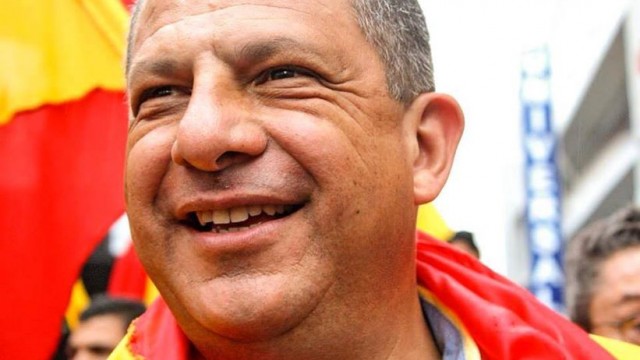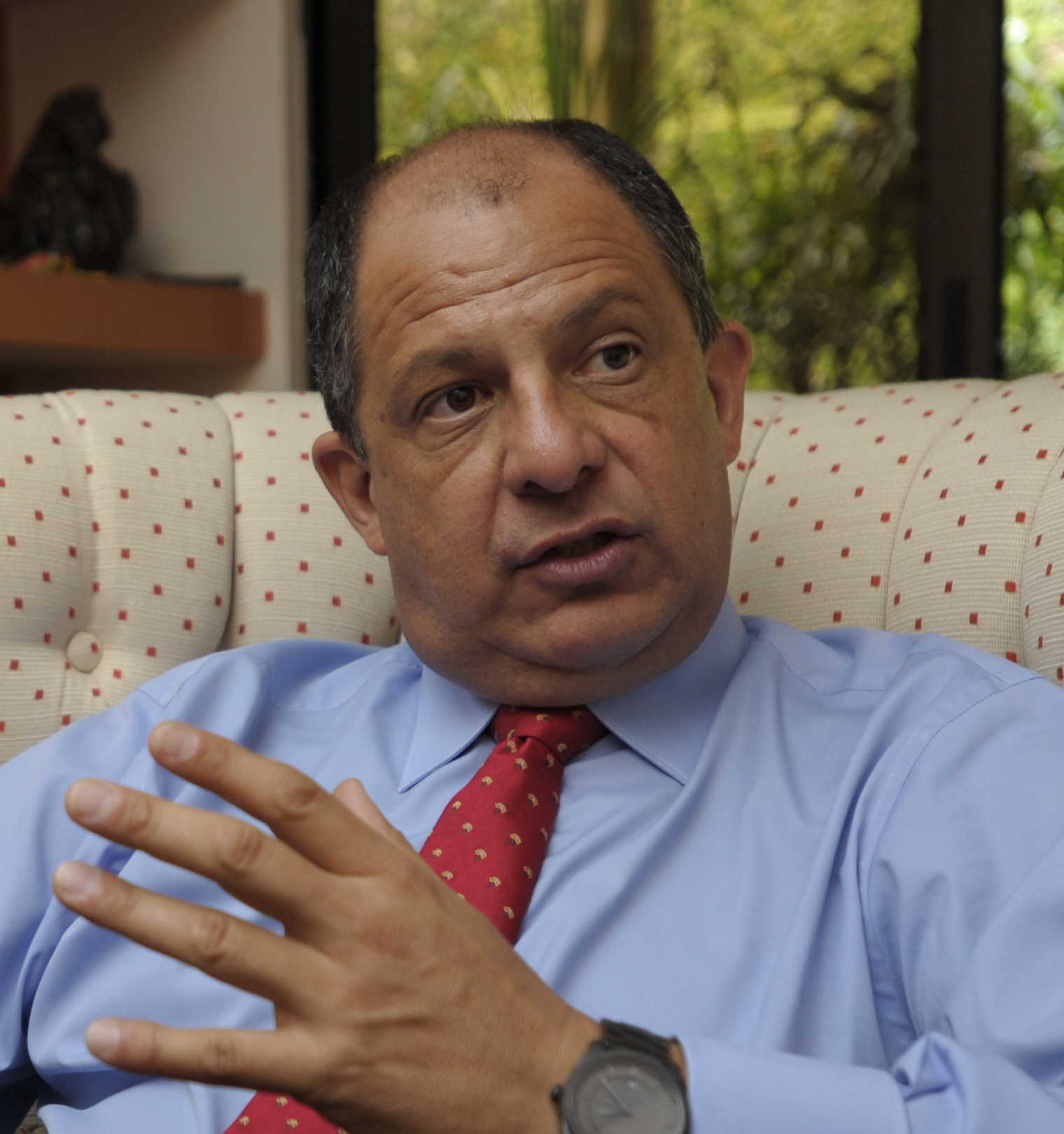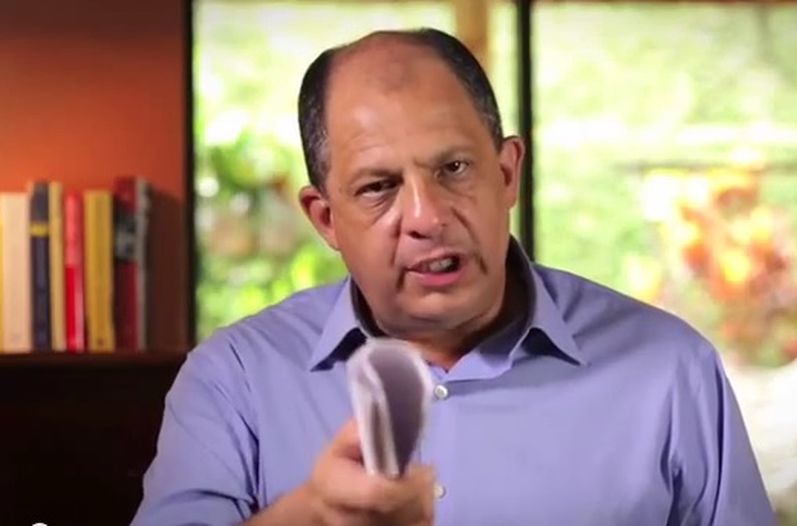Costa Rica News – It’s hard to look at Costa Rica these days and not feel an urge to paraphrase Shakespeare: Et tu Ticos?
 Ticos, as Costa Ricans are affectionately known, used to sit on a hemispheric pedestal. Their country was the prosperous, democratic Boy Scout of Central America if not all of Latin America – an oasis of good government and social equality in a region notorious for dictators and dysfunction.
Ticos, as Costa Ricans are affectionately known, used to sit on a hemispheric pedestal. Their country was the prosperous, democratic Boy Scout of Central America if not all of Latin America – an oasis of good government and social equality in a region notorious for dictators and dysfunction.
It was the green nation that dumped its army so it could spend more on schools.
But this Sunday’s presidential runoff election is a stark reminder of how far Costa Rica has slipped lately. And, if we’re lucky, it’s also a sign of how willing it seems to restore itself as a model.
Make that half a presidential election, really. One of the two candidates, Johnny Araya, dropped out of the race last month when polls showed he was headed for an avalanche loss to his leftist rival, Luis Guillermo Solís.
What was shocking about the exit is that Araya, the former mayor of Costa Rica’s capital, San José, belongs to the party in power: the National Liberation Party, or PLN. In fact, for the past six decades, the PLN has been the most dominant party in Costa Rican history and one of the most highly regarded political cohorts in the Americas.
So what happened? What happens whenever any party, even one as reputable as the PLN, soaks in power too long. Rampant corruption has leached into its ranks while economic inequality, drug violence and environmental deterioration keep registering atypical upticks as well.
“The problems just keep adding up,” says David Boddiger, editor of the Tico Times in San José. “People are ready for change.”
The focus of change is Solís. The former diplomat and history professor has never held elected office, but he’s all but certain to be elected Costa Rica’s next president. And he seems to understand that what’s at stake in Costa Rica is more than just reforming a country. Recouping a standard for the rest of Latin America is at issue as well.
“I think this election points to the force of examples,” the U.S.-educated Solís told me by cell phone as he campaigned recently in the agricultural town of Grecia. “I’m very optimistic about the possibilities of regaining the reputation that we have lost, but unless we take action right away, it’s going to be very difficult to win back the inspiring illusion people used to hold about Costa Rican politics.”
Solís, 55, experienced that Costa Rican Camelot as an adviser to former President Oscar Arias, who won the 1987 Nobel Peace Prize for his efforts to end Central America’s civil wars. Solís himself briefly served as the PLN’s general secretary in the early 2000s. But he then bolted to the Citizens Action Party because he felt the PLN had lost its way.
Unfortunately, his old party seems to have proven him right. Even Arias, during his second presidency from 2006 to 2010, looked like a jaded remnant of Costa Rica’s nobler days. Under current President Laura Chinchilla, 15 government ministers have resigned amid corruption scandals – including a finance minister who for more than a decade was underpaying his taxes even as he pushed for tax hikes for everyone else.
SHRINKING MIDDLE CLASS
Chinchilla herself got into hot water last year when she flew in a private jet whose owner turned out to be a suspected drug trafficker. She wasn’t accused of any wrongdoing, but the sordid headline was something you expected to see in next-door Nicaragua or Panama, not Costa Rica.
But Costa Ricans are bothered by more than just government sleaze. They also fear that their vaunted middle class is shrinking if not disappearing in the 21st century.
Many as a result are questioning CAFTA, the Central America Free Trade Agreement with the United States that took effect in 2009. Ticos were the least enthusiastic about the deal – and Solís opposed it. Still, despite conservatives’ fears, he hasn’t called for CAFTA’s renegotiation, and he told me instead that Costa Rica has to get back to its basics of promoting education and “innovative economic engines like clean energy.”
Which raises another source of Tico disillusionment: Costa Rica’s once stellar environmental leadership. The country had aspired to be carbon neutral by 2021. But lax rainforest preservation and expanded mining operations have helped make that goal unattainable.
“We have to get back to being more consistent between what we say and what we do,” says Solís.
That used to be Costa Rica’s hallmark. Getting it back is the mandate that Solís – who still has to prove that the professor can be a president – is poised to win on Sunday.
By TIM PADGETT, wlrn.org
Tim Padgett is WLRN’s Americas editor. You can read more of his coverage here.

